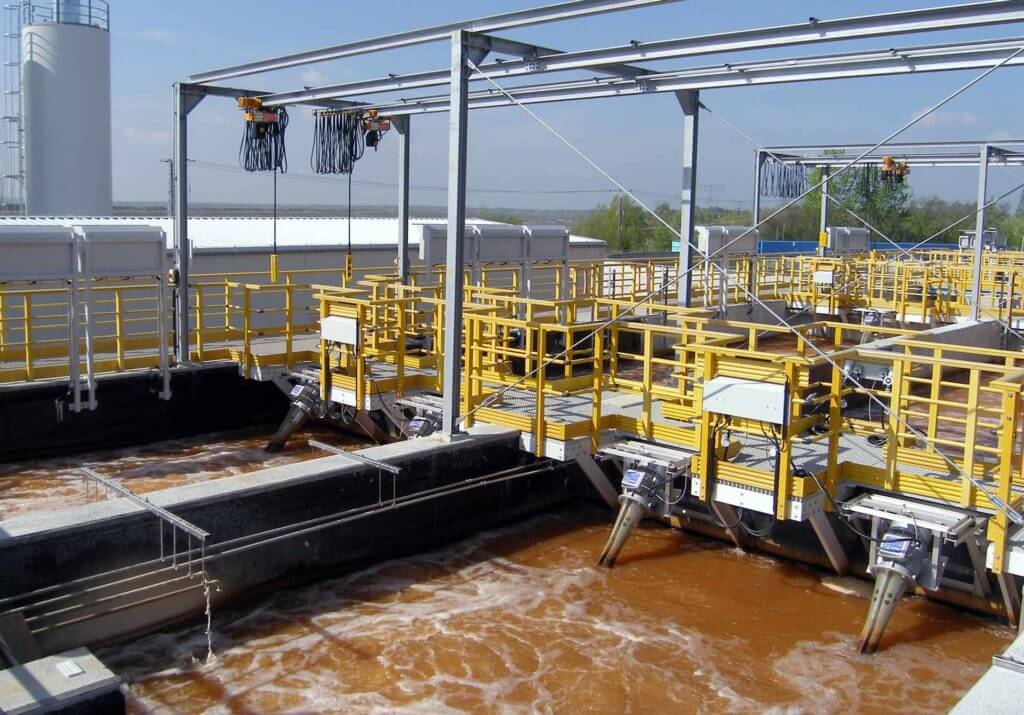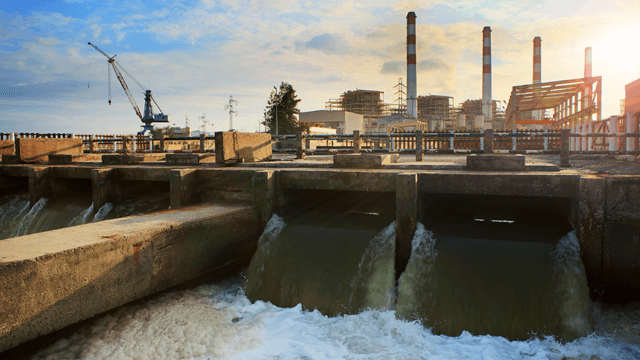Industrial Waste Water Treatment-- Secure the Environment with Specialist Water Treatment Solutions
Industrial Waste Water Treatment-- Secure the Environment with Specialist Water Treatment Solutions
Blog Article
The Role of Hazardous Waste Water Therapy in Environmental Protection
The effective treatment of industrial wastewater is increasingly identified as a foundation of environmental protection, offering to reduce the detrimental impacts of toxins on aquatic communities. As industries broaden and evolve, the demand for durable wastewater management services becomes vital to guarantee conformity with environmental policies and advertise sustainable practices. This demands a closer exam of the treatment processes employed and their effects for both environmental health and wellness and source healing. Comprehending these characteristics raises important concerns concerning the equilibrium in between industrial growth and ecological honesty, triggering more expedition of the courses onward.
Value of Waste Water Treatment
The value of wastewater treatment can not be overstated, as it plays a critical function in securing public wellness and the atmosphere (Industrial Waste Water Treatment). Reliable wastewater treatment systems are necessary for getting rid of pollutants from commercial discharge, thus stopping dangerous materials from getting in natural water bodies. This procedure minimizes the threat of waterborne illness, which can occur from untreated wastewater, and safeguards neighborhood health
In addition, dealt with wastewater can be securely reused in numerous applications, such as watering and industrial processes, promoting lasting water monitoring methods. By reusing water, industries can considerably minimize their freshwater usage, adding to resource conservation.
Along with health and wellness benefits, wastewater treatment is essential for preserving marine communities. Contaminants in unattended wastewater can result in the degradation of water high quality, harming marine life and disrupting eco-friendly balances. By treating wastewater before discharge, industries aid keep the integrity of regional ecosystems and promote biodiversity.
Moreover, regulatory compliance is a vital aspect of wastewater management. Abiding by well established ecological requirements not just prevents legal repercussions yet additionally improves a business's online reputation as an accountable business citizen. Basically, effective wastewater therapy is crucial for securing public health and wellness, protecting the atmosphere, and promoting lasting industrial practices.

Sources of Hazardous Waste Water
Industrial wastewater originates from a selection of resources, each contributing to the intricacy of therapy processes. Mostly, these resources include manufacturing centers, refineries, and processing plants, which generate effluents as a by-product of their procedures. Industries such as textiles, pharmaceuticals, food and beverage, and petrochemicals create substantial quantities of wastewater, often packed with contaminants consisting of hefty steels, organic substances, and nutrients.
Along with manufacturing, agricultural activities add to commercial wastewater with drainage and effluent from livestock operations and crop handling. The meat and dairy markets, in certain, are understood for releasing high levels of biochemical oxygen need (FIGURE) and microorganisms.
In addition, mining and mineral processing activities generate wastewater including suspended solids and unsafe chemicals. Power generation plants, especially those utilizing fossil gas, additionally contribute wastewater with cooling systems and chemical cleaning procedures.
Each of these sources provides one-of-a-kind challenges relating to the make-up and quantity of wastewater created, requiring tailored therapy options to alleviate their environmental impact. Recognizing the varied beginnings of industrial wastewater is vital for developing efficient monitoring techniques focused on protecting water resources and advertising lasting industrial techniques.
Therapy Procedures and Technologies
Reliable therapy processes read the article and technologies are essential for handling commercial wastewater and minimizing its ecological impact. Numerous techniques are used to remove pollutants, adapt to different wastewater attributes, and adhere to regulative standards.
Physical treatment processes, such as sedimentation and purification, help with the removal of suspended solids. These approaches are commonly utilized as initial actions to minimize the tons on succeeding therapy phases. Chemical treatment, consisting of flocculation, neutralization, and coagulation, addresses dissolved toxins by changing their chemical residential or commercial properties, making them less complicated to divide from water.
Organic therapy technologies, such as triggered sludge systems and biofilters, make use of microorganisms to degrade raw material and nutrients. These methods are specifically effective for biodegradable waste streams, advertising the all-natural disintegration procedure. Advanced treatment modern technologies, such as membrane layer filtering and advanced oxidation procedures, offer improved removal performances for challenging toxins, including heavy steels and relentless organic compounds.
Each of these therapy processes can be set up in numerous combinations to create customized remedies that satisfy particular commercial requirements. The choice of technology depends on aspects such as the type of wastewater, preferred treatment outcomes, and financial considerations, making sure that markets can operate sustainably while lessening their ecological impact.
Environmental Advantages
Executing durable wastewater therapy refines not just guarantees conformity with regulative requirements but also produces significant ecological benefits. Effective therapy of commercial wastewater lowers the discharge of damaging pollutants right into all-natural water bodies, consequently safeguarding marine ecosystems. By eliminating hazardous substances, hefty steels, and virus, these procedures help preserve biodiversity and promote much healthier communities.
In addition, treated wastewater can be repurposed for various applications, consisting of irrigation and industrial processes, decreasing the demand for fresh water sources. This reuse not just preserves water yet also lowers the tension on local water materials, which is specifically crucial in water-scarce areas.
Additionally, reliable wastewater treatment mitigates the threat of soil and groundwater contamination, guaranteeing the honesty of neighborhood environments. additional hints Industrial Waste Water Treatment. By avoiding the infiltration of harmful compounds, industries add to the general wellness of bordering ecosystems and communities, boosting public trust and cultivating lasting commercial techniques
Regulatory Structure and Conformity
A detailed governing structure governs the treatment of industrial wastewater, making sure that industries adhere to strict conformity requirements. Different nationwide and local guidelines, such as the Tidy Water Act in the United States, stated limits on the discharge of pollutants right into water bodies. These policies are developed to secure marine environments and public health by mandating that markets apply suitable therapy technologies.
Conformity with these regulations usually includes acquiring licenses, conducting regular tracking, and reporting discharge degrees to governing authorities. Failing to conform can cause substantial fines, including penalties and operational restrictions, therefore incentivizing industries to adopt ideal practices in wastewater administration.
Along with governmental laws, several industries also stick to voluntary criteria and certifications, such as ISO 14001, which promote sustainable environmental look what i found management methods. In addition, stakeholders are progressively advocating for improved openness and responsibility in wastewater management, promoting stricter enforcement and more extensive coverage requirements.
Inevitably, a durable governing structure not just offers to minimize ecological dangers yet also cultivates a culture of sustainability within the commercial market, motivating continual enhancement in wastewater treatment procedures.
Final Thought

The reliable therapy of commercial wastewater is progressively acknowledged as a cornerstone of ecological protection, serving to reduce the destructive impacts of pollutants on water communities. Effective wastewater therapy systems are necessary for removing contaminants from commercial discharge, thereby protecting against dangerous materials from going into all-natural water bodies.Industrial wastewater stems from a selection of sources, each contributing to the complexity of therapy processes. Reliable therapy of commercial wastewater lowers the discharge of damaging toxins right into natural water bodies, consequently protecting water environments.In final thought, industrial wastewater treatment is crucial for guarding ecological integrity and advertising lasting water monitoring.
Report this page